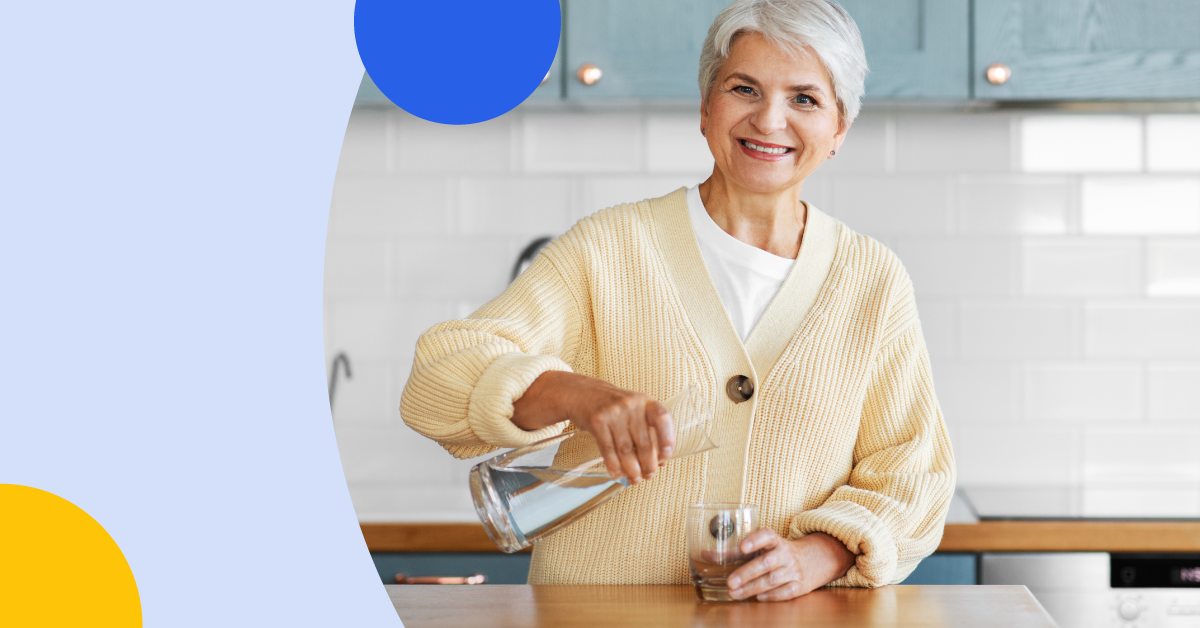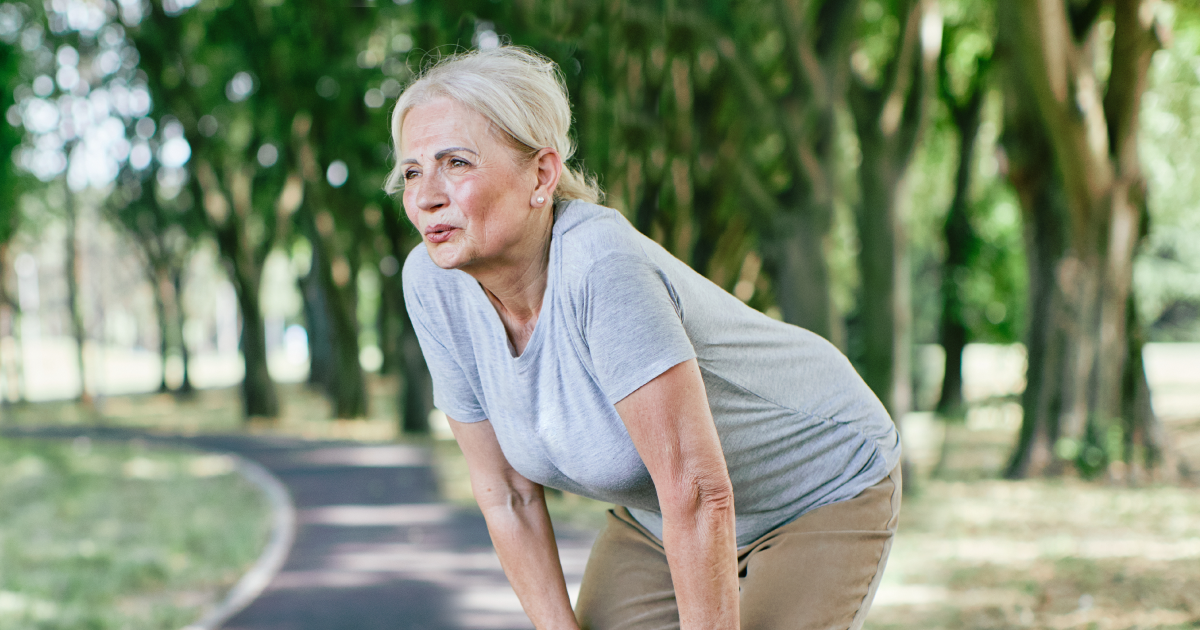Does Drinking Water Lower Blood Pressure? A Scientific Exploration
Your blood pressure is the most accessible marker for the health of your heart and blood vessels. Managing high blood pressure properly can benefit your overall health in so many ways.
One question many ask is: does drinking water lower blood pressure? That’s a good question, and this article will answer it. It’ll also let you know how hydration or dehydration can impact your blood pressure, and how other lifestyle changes can too.

Master your heart health now
Take part in our 60sec quiz and get a heart health plan tailored just for you.
Contents
Start managing your heart health now!
Find out what works for you with this 60sec quiz.

Does Drinking Water Lower Blood Pressure?
Drinking water is known to be good for essentially every system in the body, but can it help lower blood pressure? What does research say about that?
Well, there are a handful of studies that have be done on this, and many of them agree that the more optimal your hydration, the lower your blood pressure. So basically, yes, drinking more water can lower blood pressure levels.
For instance, one Japanese study found that moving from an average of 1.3 to 2 liters of water every day for 12 weeks significantly decreased systolic blood pressure.
Another study done in Saudi Arabia showed that patients with high blood pressure showed worse hydration indices than people with normal blood pressure. This suggests that the more hydrated you are, through drinking more water, the better your blood pressure levels.
Potential Benefits of Drinking Water for High Blood Pressure
Increased sodium levels in the blood are well known to significantly raise blood pressure. When you don’t drink enough water, your body is “hypohydrated”, and this has been shown to reduce how much sodium is passed out in the urine. Drinking enough water means your body can get rid of more sodium.
Drinking water is an easy way of returning blood volume to the normal range, especially when dehydrated. One benefit to this is that increased volume means the blood tends to be less viscous, reducing the risk of blood sludging and clots forming in blood vessels.
In people with high blood pressure, drinking water potentially benefits management, but particularly in people who don’t drink enough in the first place. It may be most effective when combined with other lifestyle modifications like exercise and healthy eating.
How much water should you consume to notice changes?
So, how many glasses of water should you drink to lower blood pressure levels?
The Japanese study mentioned earlier had the participants drink 550 mL in the first two hours of being awake, and 550 mL two hours before bed on top of their daily intake of 1 L. This came to an average daily consumption of 2 L (about 8 average glasses of water). This amount of water was enough to see noticeable changes.
Is too much water good for high blood pressure?
While drinking water can help in lowering blood pressure, there are risks in overdoing it. Overhydration usually doesn’t happen in healthy people, but it comes with its own special set of risks.
One study showed that drinking an extra 2 L of water every day could lead to increased blood pressure. This shows that it is important to hit that sweet spot of water consumption if you have high blood pressure.
Can Dehydration Cause High Blood Pressure?

Dehydration is interesting, because depending on the severity, it can cause high blood pressure and also adversely lower your blood pressure.
Mild dehydration can cause spikes in blood pressure, likely due to increased sodium concentration and the blood vessels constricting to compensate for the reduced volume.
However, severe dehydration can cause a significant drop in blood pressure by causing shock. This is when the blood volume is too low for the body to compensate. This makes the blood flow too weak to effectively feed organs and can be life-threatening.
Reach out to your healthcare provider immediately if you see symptoms of shock like low blood pressure, cold clammy hands, confusion, pale skin, and fainting.
Other Lifestyle Changes That Can Help Control High Blood Pressure
When trying to manage high blood pressure, drinking more water is just one of the lifestyle changes you can try. There are many others that can help lower your blood pressure.
If you manage stress better, get more physical exercise in, and start on a balanced diet, you’re bound to reduce high blood pressure noticeably. These are established changes for high blood pressure that your healthcare provider will recommend.
Reducing sodium intake
The link between sodium intake as a risk factor of high blood pressure has been established for a long time. You can lower blood pressure by reducing your dietary salt intake. On top of that, it can also reduce the risk of heart disease and stroke.
Here are some tips you can follow to get less sodium in your diet:
- Check out nutrition labels. Foods with more than 20% DV (daily value) of salt per serving are considered to be high in salt, while 5% DV or lower is low. Try to make sure you don’t go over a total of 100% each day.
- When buying canned foods, opt for the low-salt or salt-free versions.
- When cooking at home, try to substitute salt for more seasonings.
- Reduce your fast food intake.
- Watch out for sauces, dips, and dressings, as these usually have more sodium than you’d expect.
- Avoid or reduce foods rich in sodium, such as:
- Pizza
- Burgers
- Breads and rolls
- Cured meats
- Fried chicken
- Snacks like chips, crackers, and popcorn
Start managing your heart health now!
Find out what works for you with this 60sec quiz.

Physical activity and exercise
Getting more exercise into your life has been proven to help treat high blood pressure, through countless studies.
You don’t need to become a full-blown gym rat to get these benefits either. Aerobic exercises that you’re comfortable with, like brisk walking, jogging, swimming, and cycling, can provide benefits.
Getting about 150 minutes of this kind of exercise every week is enough to lower your blood pressure. On top of that, physical fitness can help with so many other health problems, like bringing you to a healthy weight.
It can be hard to stay consistent though, and it can be hard to build a routine for yourself. The good thing is that Cardi Health can help you manage your high blood pressure by giving you exercise routines that are personalized for you.
Stress management techniques
Nobody likes to be under constant stress and for good reason. It doesn’t feel great. But it’s even worse for people with high blood pressure since stress can further increase blood pressure.
Since it can lead to a higher risk of high blood pressure, it is important to learn how to manage stress in healthy ways. This is what stress management techniques are for.
The good thing is that there are many options that you can try to tackle it and keep away from hypertension. Here are a few:
- Meditation
- Yoga
- Exercise
- Deep breathing exercises
- Listening to music
- Relaxing or taking a nap
- Socializing with friends and family
FAQs

It’s now clear that adequate water intake helps maintain normal blood pressure, and dehydration, depending on the severity, can either increase or decrease blood pressure.
However, you might have some other questions related to water and hypertension, so let’s answer some of the more common ones.
Will my blood pressure go down if I drink water?
If you drink water, your blood pressure won’t immediately go down. In fact, drinking water acutely increases blood pressure before the benefits may kick in.
However, if you are in a state of hypohydration and drinking plenty of water brings you to optimal levels, you’re bound to see a positive effect on your blood pressure.
How much water should I drink to lower blood pressure?
Drinking an average of 2 liters (0.5 gallons) of water every day has been shown to benefit hypertension management. One study showed a decrease in systolic blood pressure from an average of approximately 124 mmHg to 117 mmHg, just from that one change.
How can I quickly lower my blood pressure?
There’s no way to drop your blood pressure in seconds, but there are many things that can drop it fast. Hypertension medication is probably the most effective one, but many people look for alternatives first.
Below are some things you can try to achieve a small reduction in your blood pressure relatively quickly:
- Engaging in stress management techniques like meditation, yoga, and breathing exercises
- Certain drinks, like green tea, herbal tea, and pomegranate juice
- Exercising
- Eliminating risk factors like salty and fatty food, caffeine, and alcohol intake. Also, stop smoking if you can
Start managing your heart health now!
Find out what works for you with this 60sec quiz.

Conclusion
This article set out to answer a question: does drinking water lower blood pressure? The answer is yes. If you have high blood pressure, making sure you get enough glasses of water each day can ensure you’re properly hydrated, which helps in hypertension.
However, managing hypertension isn’t only about water. Adopt other helpful lifestyle changes, like exercising, managing your stress, and eating healthy. Sticking to a heart-healthy meal plan and exercise regimen are things that Cardi Health can help with.
Also, eliminate things that increase your risk of abnormally high blood pressure, like too much alcohol intake and tobacco.
Related articles
Best Foods to Lower Cholesterol
Does Caffeine Raise Blood Pressure?
Causes of High Blood Pressure at Night
10 DASH Diet Breakfasts for a Healthy Start
Heart-Healthy Diet Guide
What Should an 85-Year-Old Blood Pressure Be?
What is Normal Blood Pressure for a 70-Year-Old?
How to Read Blood Pressure: A Comprehensive Guide
Wearing a Heart Monitor for 2 Weeks: What You Need to Know
Manage your heart health now
Find out what works best for you with this 60sec quiz and get your personalized heart health plan.

